It is with great sadness that we mourn the death of Dominika Sitek, who died in her university dorm room on Saturday 19 November. Dominika was only 22 years old.
Dominika was a second year student in the European Law School bachelor programme at the Faculty of Law. Although she was born in Poland, she spent most of her young adulthood in Germany. Due to her multilingual upbringing, she was absolutely thrilled to study abroad and meet new people from different parts of the world upon coming to Maastricht in 2021.
Her friends describe her as a fiercely loyal, empathetic and extremely caring friend who offered a listening ear and a shoulder to cry on. Her open mindedness and acceptance of everyone’s thoughts, feelings, and their strengths and weaknesses made people around Dominika feel loved and understood.
Although her time in Maastricht was short, she got to experience almost all that university life has to offer. From long days and nights studying in the library, to complete meltdowns before exams and then celebrating successful exams at parties with friends, she enjoyed her time to the fullest.
After struggling with anorexia for over four years, Dominika unexpectedly lost the fight at the age of 22. She will be forever missed by family, friends and fellow-students and everyone that got a glimpse of her fire red hair.
Our thoughts and deepest sympathies are with Dominika’s family and friends.
On behalf of the Faculty of Law
Jan Smits, Dean
Nicole Kornet, Director of Studies Bachelor European Law School
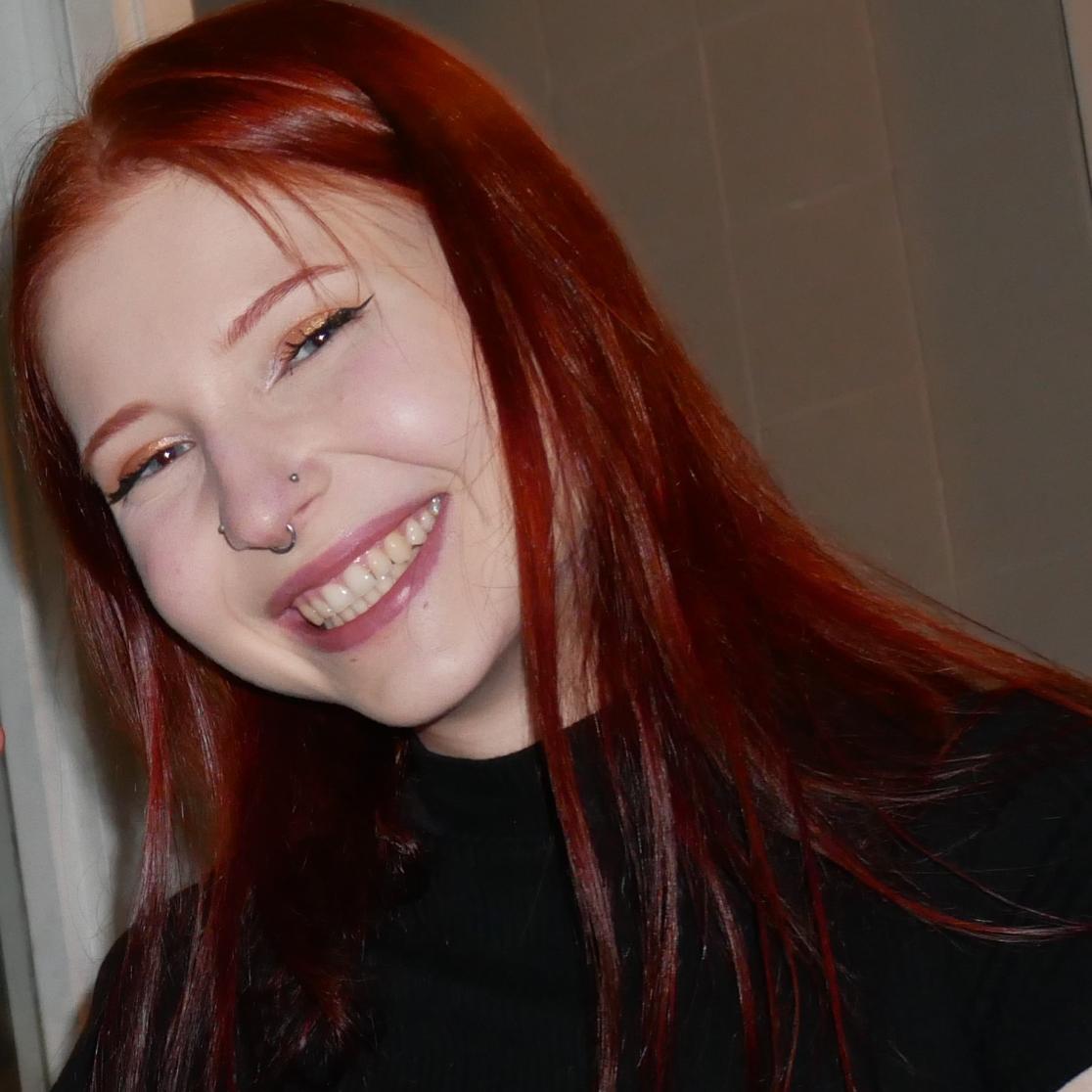
This and next week, from Thursday 8 to Wednesday 14 December, room C.2.106 in our Faculty Building at the Bouillonstraat 1-3 will be devoted to the loss of Dominika and to those who wish to pay their respects and write a message in the book of condolences to Dominika’s family.
It may be that you need psychological help as a result of the passing of Dominika. The student psychologists at the Student Services Centre as well as the study advisors at the Faculty of Law will be there for you if you need them. Feel free to contact the student psychologists at the SSC (+31 43 3885212) or the study advisors at (+31 43 3883045).
Giving people at a distance from the labour market a chance to work, that is the approach of a Dutch law passed several years ago. These are often people who are able to work well, provided they are properly supported. To achieve the best match between employer and employee, staff from the UM Staff Career Centre mediate between university departments and various national and regional organisations. Mark Coumans is a perfect example of a great match.
Mark Coumans (38) is a caretaker at the Student Services Centre (SSC): ‘I have found my niche here. It is actually much more varied than I thought it would be. I enjoy going to work every day.’
Mark is keen to share his story because he is grateful to have been given the opportunity to work at the SSC. ‘I have ADHD’, Mark tells candidly. He ended up on disability, even though he had seized every opportunity to work. For instance, he trained as a website developer and did that work for a short time. However, long days behind a computer screen turned out not to be for him; Mark prefers to be active. ‘I also regularly applied for jobs on my own, but that didn't result in anything long-term. And that's what I wanted, because it brings peace and stability. Then I got in touch with the university through Jobstap, a job coaching agency. I had an introductory interview with Marlies (building manager of the SSC) and it clicked immediately. She is also a bit hyper, like me; her colleague, one the other hand, is very calm. That works well. I have learned to be a bit calmer’, he laughs.
Varied work
The position of caretaker offers a various range of tasks. Mark: ‘I have to be easily approachable for people with questions, and that suits me well. I like dealing with people. My previous jobs soon felt like a grind, but that is not the case here. The work is very varied, in a nice environment with great colleagues.’ Marlies adds: ‘Mark is my right-hand man, especially when it comes to ICT. He is very handy at that. I see what his strengths are and we make the most of them together.’
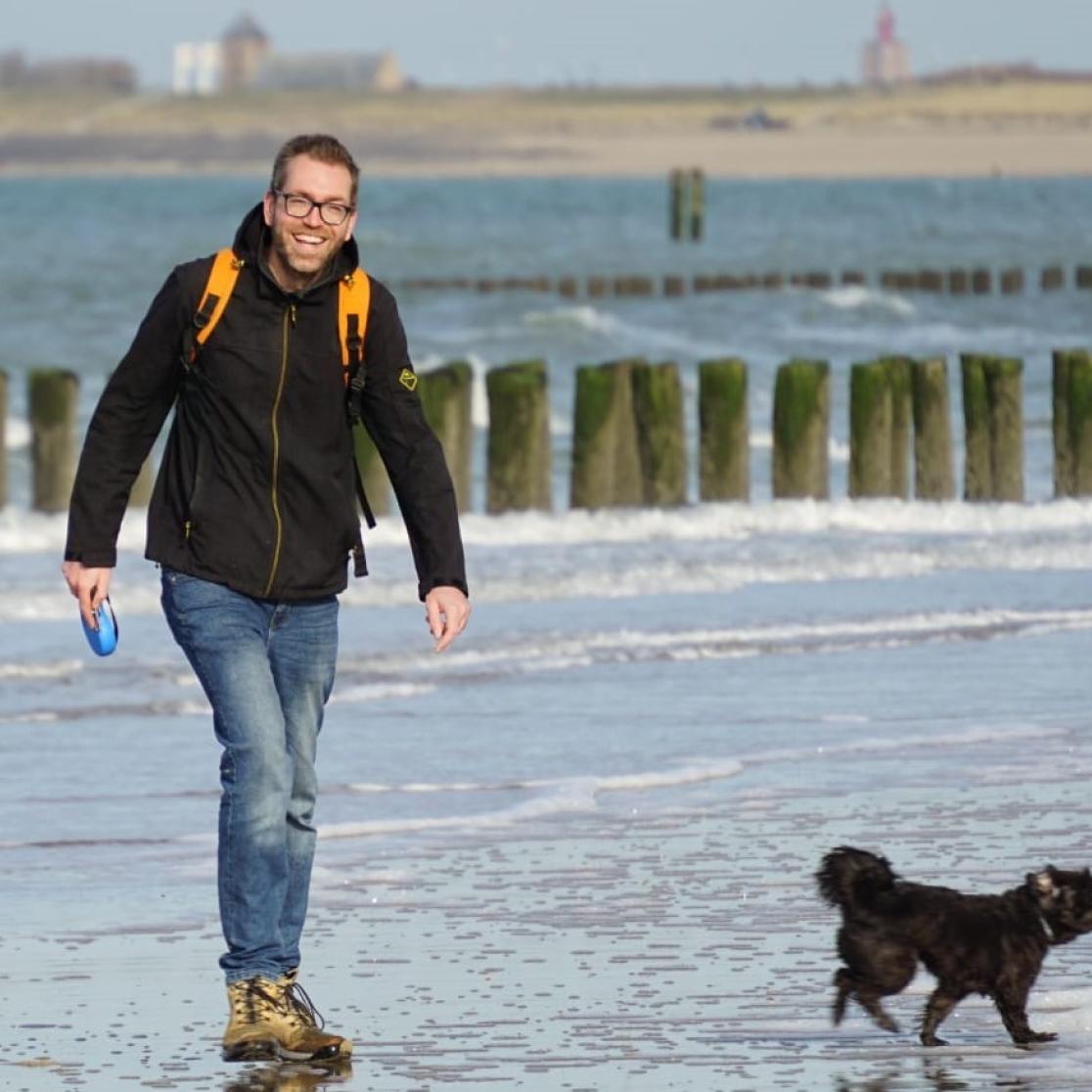
Future prospects
Administrative tasks, on the other hand, suit him a little less. ‘But’, says Mark, ‘I get the chance to learn and improve. I also see a future here. By the time Marlies retires, I hope to be able to take over her role. In the coming years, I want to work on the competences needed for that. When I started here, I never thought that I would get this far; I have really found my niche.’
|
If your department could also benefit from support, please contact Anita Meijers and Yvonne Lenoir (co-ordinators of the Labour Market Participation Act) at email: scc-participtie@maastrichtuniversity.nl Look here for more information: https://www.maastrichtuniversity.nl/nl/over-de-um/andere-afdelingen/staff-career-centre/wet-banenafspraak-en-participatiewet (only in Dutch). |
H'The work is very varied, in a nice environment with great colleagues.’
What's going to change?
Nothing changes in the way you send e-mail messages. The only thing that changes is the location where your mailbox data is stored. Your mailbox is moved from the internal Microsoft Exchange Server to Exchange Online.
Advantages:
- By default you get a larger mailbox (50GB/100GB depending on your account type, student, employee, etc.).
- Nothing will change in your mailbox, all your existing folders will move with you
- Always automatically the most up-to-date and secure e-mail environment
- For users who use MS Teams there are additional advantages:
- You get a new tab called 'Calendar'. This is your Outlook Calendar.
- The status of MS Teams is automatically updated with your Outlook and/or Teams status instead of
only the Teams status. So non-Teams meetings are now also visible in the presence.
- Now you can use your Outlook contacts in MS Teams
When will this change take place?
The move to Microsoft 365 Online is startedin phases in Q4-2022. Before your mailbox will be moved to Micorosft 365 Online, you will receive an e-mail form ICTS Servicedesk. You will receive also a reminder.
What do you have to do before switching to Microsoft 365 Online?
Change your e-mail profile of your mobile phone in time
Check your settings of other e-mail applications such as Mail for Windows
Microsoft Outlook
No action is required. Once the move of your mailbox is complete, you will get a pop-up from Outlook asking you to restart Outlook. Follow these instructions and Outlook will detect the new settings. You may get a pop-up asking for your credentials. In that case, use your UM e-mail address and password to log in.
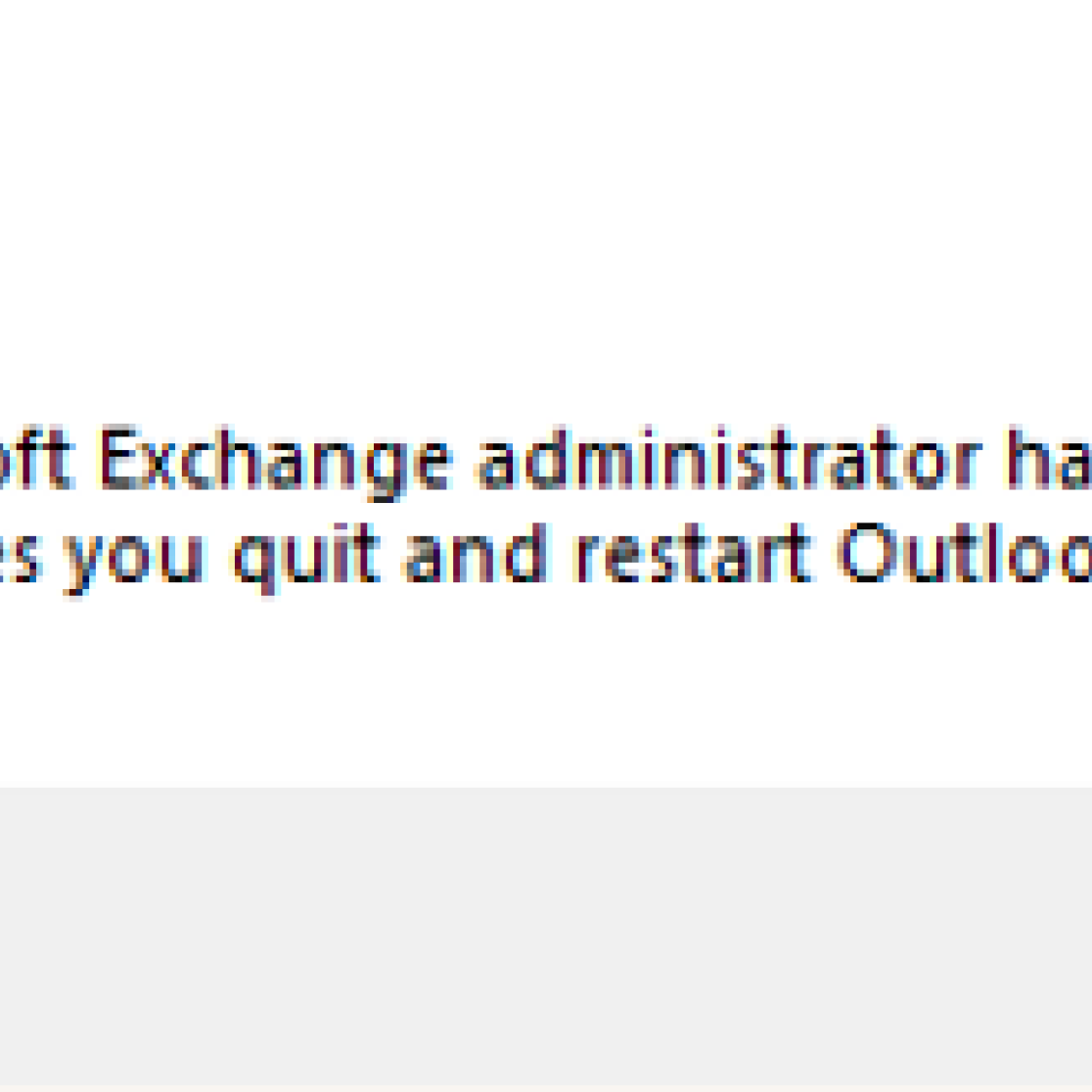
Outlook for Mac / Mail Apple Mail
If you are using Outlook for Mac please follow the following steps: Outlook 365
If you are using Apple Mail please follow the following steps: Apple Mail
Outlook Web App (webmail)
Accessing your mail via Outlook Web App (webmail) changes slightly, but the procedure for logging in remains the same. When your mailbox has been moved and you try to access your mailbox via https://mail.maastrichtuniversity.nl, you will get a message telling you to click on a link that refers to https://outlook.office.com. The first time you log in this way, you may get a second screen asking for your e-mail address. This will only be asked once.
PS: When you get an error message instead of the link https://outlook.office.com please clear your browser history and cookies as instructed.
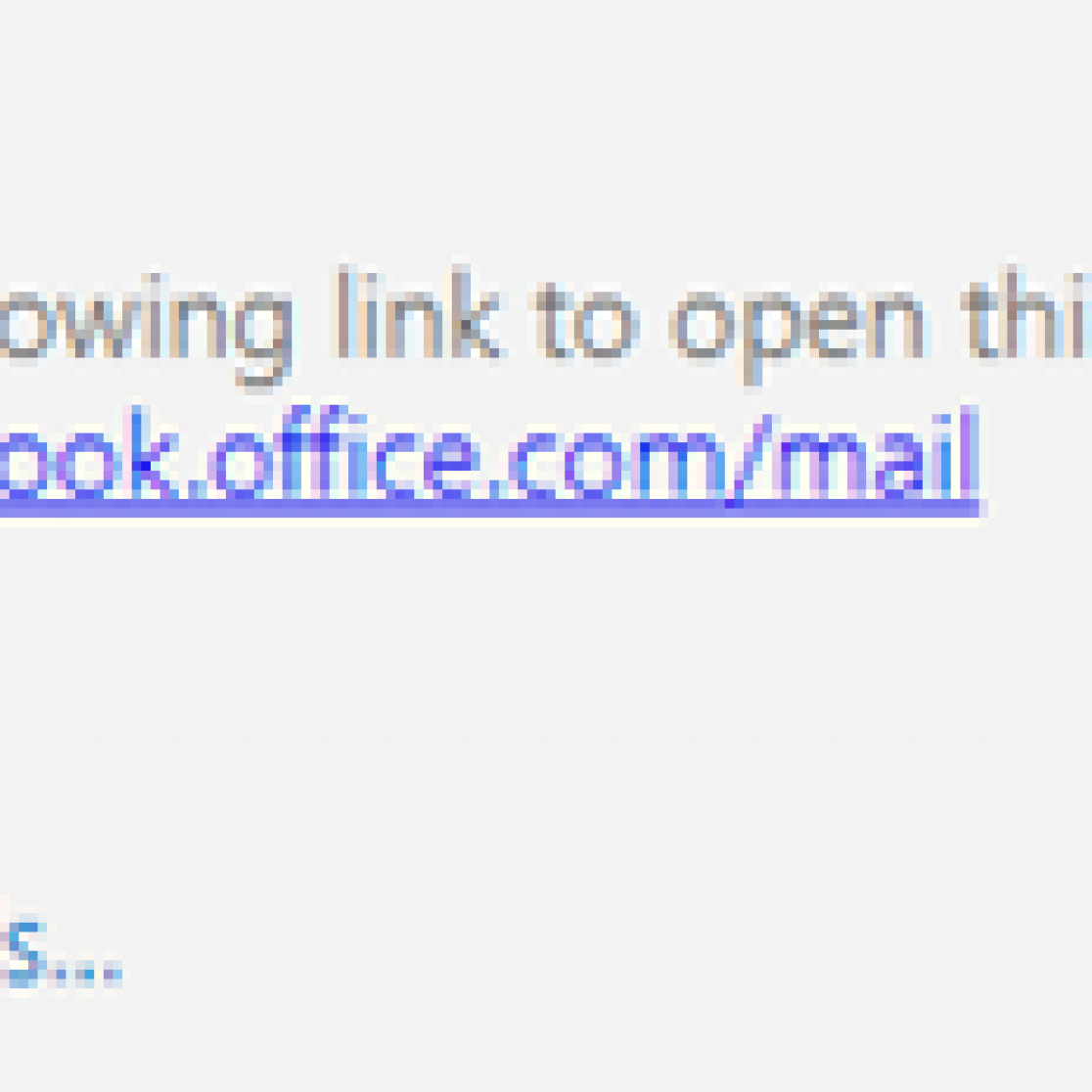
Mobile phone
Your e-mail profile on your mobile phone needs to be recreated. First delete your current e-mail profile. How you do this depends on the type of device you are using. After deleting the profile, follow the steps described on the given links.
| Remove profile | Create new Profile | |
| Android mobile device using Microsoft Outlook |
Please remove the current mail profile from your device
|
Click |
| Apple mobile device using Microsoft Outlook |
Please remove the current mail profile from Outlook
|
Click |
| Android mobile device using Gmail |
Please remove the current mail profile from your device
|
Click |
| Apple mobile device using iOS Mail |
Please remove the current mail profile from your device
|
Click |
Custom e-mail applications (e.g. Thunderbird, Mail for Windows)
Once your mailbox is moved, your e-mail application cannot synchronise. You may get some errors such as 'could not synchronise' or 'mailbox not found'. Delete your current e-mail profile and set up a new one with the following settings if necessary:
| IMAP | SMTP | |
| Server | outlook.office365.com | smtp.office365.com |
| Port | 993 | 587 |
| Encryption method | SSL | (START)TLS |
| Authenthication method* | OAuth2 | OAuth2 |
| Username | e-mail address | e-mail address |
| Password | UM-password | UM-password |
* This setting is only needed for Thunderbird users. If you don’t see this option, please run ‘Re-test’ first.
If you are using MyTimetable, please pay attention!
The link between MyTimetable and your calendar will be terminated the day before the migration. This means that all future items that MyTimetable has placed in your calendar will disappear on the day of the move. You must re-enable this link yourself after the migration. The steps required to achieve this can be found at the Maastricht University webpage by searching for ‘My Timetable’.
"Making Better"
'Making the patient better' was the central motto of Kees Dejong, Professor of Hepato Pancreato Bilial Surgery at the azM/MUMC+. His entire career was dedicated to optimizing care for the seriously ill patient whose care was entrusted to him. Always with an eye for the person behind the patient and looking for solutions when many no longer saw a way out. Making things better' was often Kees' concluding remark when a complex patient case was discussed during the multi-disciplinary consultation.
'Making better' was unfortunately not an option for the disease he himself was afflicted with and which forced him to end his career early. How much he would have loved to continue working to care for his patients.
Kees was married to Odile, his beloved with whom he shared his life since high school. Together they had four children, Giulia, Anne Linde, Kaspar and Job, and three grandchildren.
A native of Maastricht, after studying Medicine in Nijmegen, he returned to his hometown for his doctoral research (1993, on metabolic changes in liver failure) and to train as a surgeon. Kees was privileged to have had great teachers in a Master-Seer position: in translational research from P. Soeters, W. Buurman and K. Fearon and in surgery from K. van Duin, OJ Garden and KK Madavan.
Kees completed his education as a surgeon in 1997. Since 1998, he worked as a surgeon at Maastricht UMC+. From 1998 to 2000, he also worked as Senior Lecturer and Consultant Surgeon within the Department of Surgery at the Royal Infirmary of Edinburgh, Scotland.
In 2008, Kees was appointed Professor of Hepato-Pancreato-Biliary Surgery within the MUMC+ and held the role of Head of the Division of Gastrointestinal and Oncological Surgery from 2008 to 2018. He also served as Vice Chairman of the Department of Surgery from 2007-2009.
Kees' clinical focus was primarily in the area of Hepato-Pancreato-Biliary Surgery and optimizing peri-operative care, including Enhanced Recovery After Surgery (ERAS). He was a founding member of the ERAS Society and was instrumental in establishing laparoscopic liver surgery in the Netherlands.
Kees Dejong held many (inter)national leading roles. For example, he was Editor of the British Journal of Surgery from 2007 to 2019, President of the Dutch Liver Working Group, President of the Dutch Chapter of the International Hepato Pancreato Biliary Association (IHPBA), Vice President of the Dutch Society of Gastroenterology, Secretary General of the European-African HPB Association and, until he became ill, Secretary General Elect of the IHPBA.
Kees had a great passion for transferring knowledge. Within MUMC+ he fulfilled the role of acting trainer for fourteen years and shaped this position with enthusiasm. Consequently, he was invariably at the top of the annual survey of role models in the department. In recent years he was increasingly active internationally, where he was the founder of the international examination to become an HPB surgeon (UEMS).
His main research interests were improving patients' clinical outcomes and the role of the gut-liver axis in the disease process. Early in his career, he was awarded a prestigious Clinical Fellowship from NWO that enabled him, from 2001-2006, to start his own line of research around liver failure. This was later extended to metabolism and ischaemia-reperfusion injury and metabolic disturbances in the gut-liver axis and optimizing the peri-operative condition of the patient.
He introduced ERAS principles in HPB surgery and led a large implementation study of these in 31 Dutch hospitals. Kees directed the Metabolic Laboratory of the Department of Surgery between 2006-2012 (with Prof. Dr. Buurman) and was very active within the research school NUTRIM. As supervisor, he supervised 32 young scientists and published more than 400 Wi-1 articles.
Kees received (inter)national recognition for his contribution to the clinical and scientific profession by, among others, the Glaxo Gastroenterology prize for best dissertation (1994), the Niels Stensen Stipendiate (1998), the appointment as Fellow of the Royal College of Surgeons of Edinburgh (ad hominem; 2014), the Frieda den Hartog Jager prize of the Dutch Society of Gastroenterology (2020) and Honorary Membership of the IHPBA in 2022.
“If I have seen further it, is by standing on the shoulders of Giants”.
With this quote from Bernard de Chartres (and Isaac Newton), Kees accepted the gold medal of the Dutch Society of Surgery in January 2022. This award was given to Kees because of the special significance and influence he has had, both nationally and internationally, for the development of Dutch surgery.
Kees was an excellent clinician and scientist who pioneered hepatobiliary surgery in Maastricht and far beyond. Above all, he was an extraordinarily warm human being, a hospitable Burgundian, a Francophile with his own vineyard. Someone who possessed enormous wisdom and was a very committed mentor to his PhD students whom he provided with fatherly advice.
With the passing of Kees Dejong, we lose a very special person, an outstanding colleague, an example to us all.
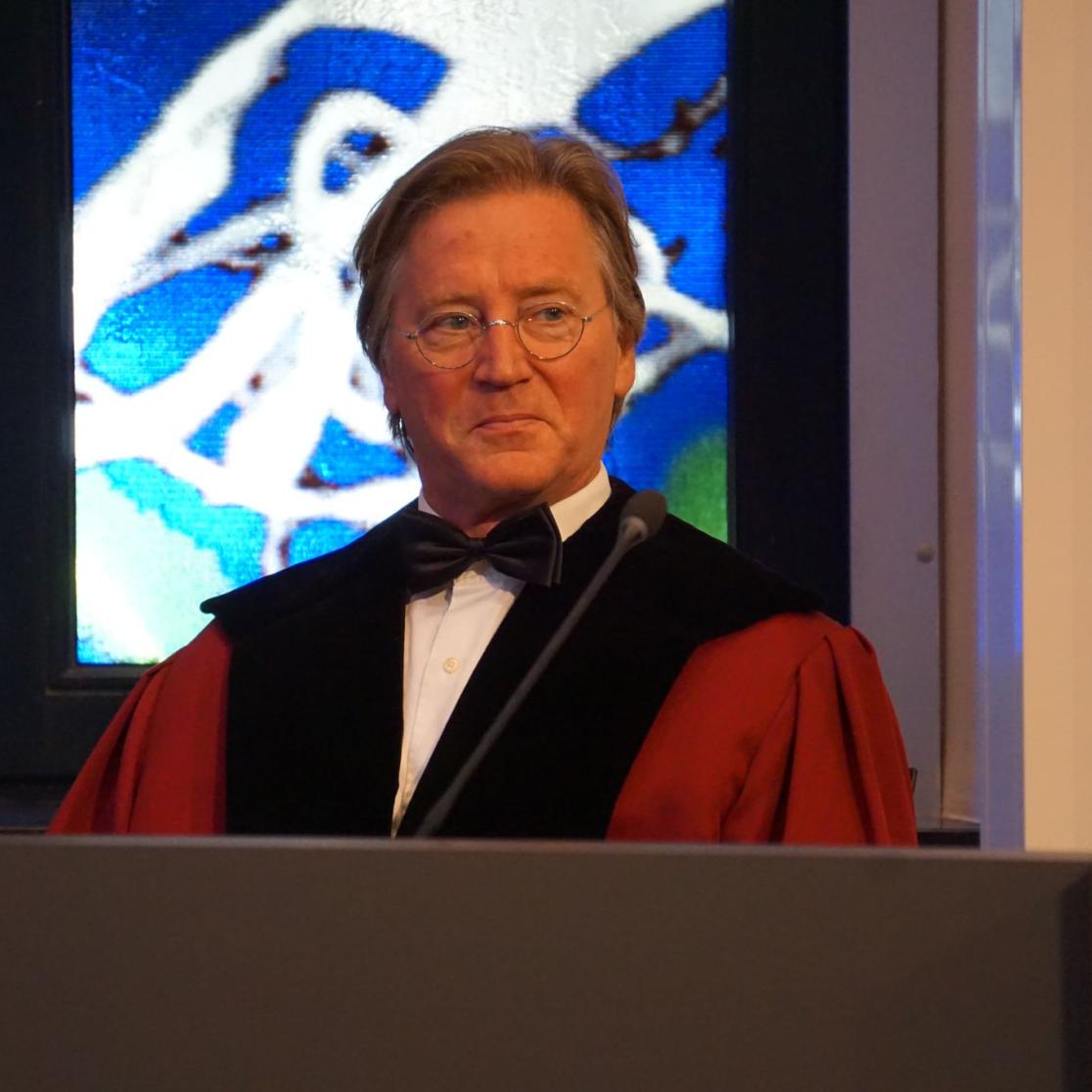
Request theses
Interested parties may request a copy of a thesis from the concerned promovendus/-a or download a copy from the publications section at the website of the University Library.
Videos orations and speeches
It was with great sadness that we learned of the sudden passing of William Rogers at the age of 42, on Saturday, September 17, 2022.
As an early-stage researcher, Will was part of the PREDICT consortium, a Marie Skłodowska-Curie innovative training network. He started his PhD in Milan at the Istituto Nazionale Tumori in 2018 and in 2019 joined the department of Precision Medicine at Maastricht University. His research consisted of using radiomics and deep learning for improving the diagnosis and prognosis of cancer.
During his first years, he explored the potential of radiomics and deep learning in oncology, leading to a well-cited paper in The British Journal of Radiology. He later chose to study transformers and their application to medical imaging, with the goal of creating a model which can better interpolate CT-scans than currently used techniques. His paper on this topic was well advanced in the reviewing process of Computers in Biology and Medicine.
Will was a very dedicated student, passionate about his work and at all times willing to help his colleagues. He was always friendly and open to joining any kind of activity. Lately, he developed a passion for bouldering, skating and snowboarding, which he gladly shared with his friends and colleagues.
The loss of Will has deeply saddened our department and our thoughts go out to the family and friends he left behind.
On behalf of his colleagues in the Department of Precision Medicine.
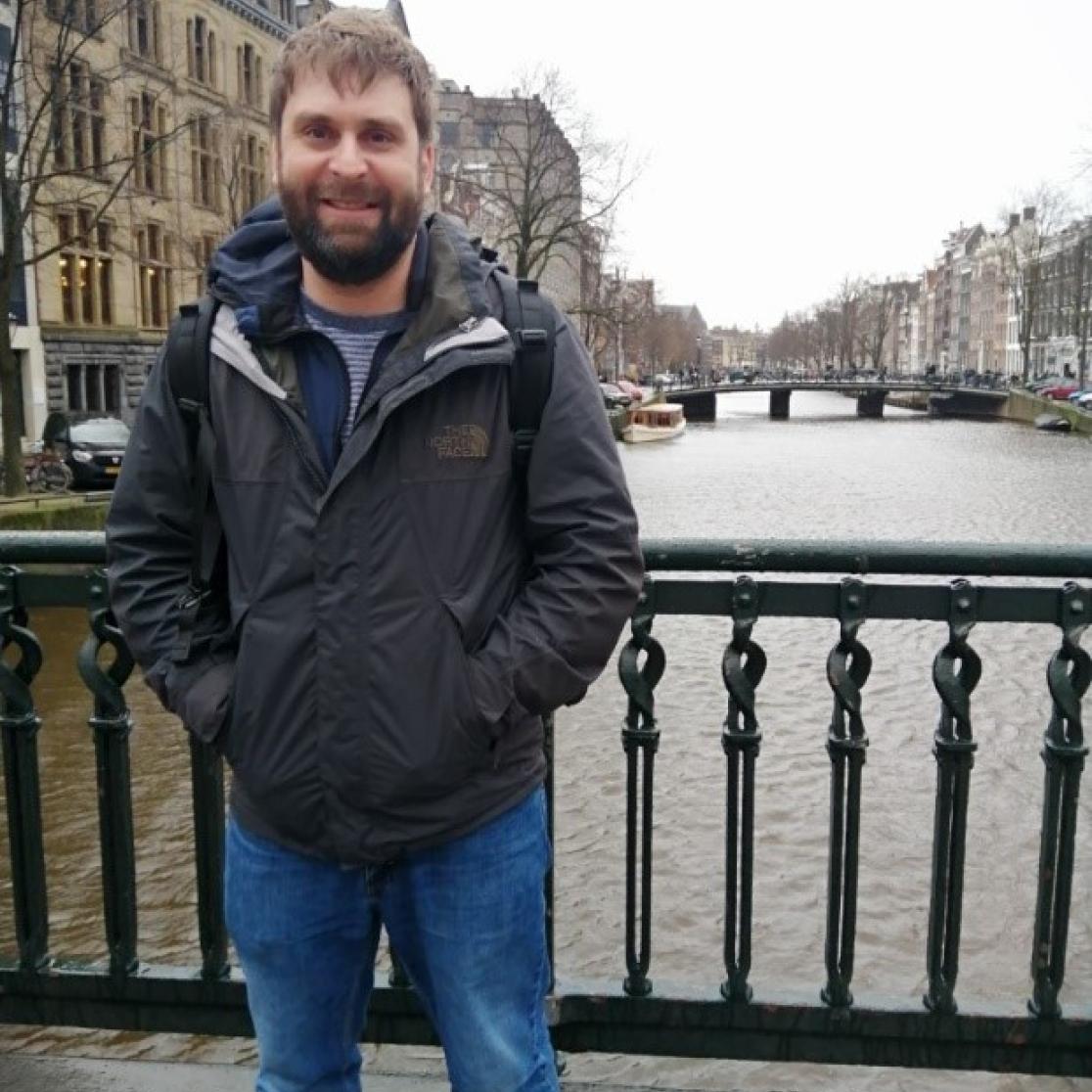
What is the role of the Law Student ambassador?
You will represent and promote your master’s programme among prospective students.
Specific tasks of this position entail:
Managing your programme specific Instagram account with weekly updates about the programme and your student life
Answering questions from prospective students through Instagram and personal appointments
Representing your programme during open days, online Q&A sessions and other events.
What does a successful candidate look like?
A successful candidate for the position must:
Be proud to study at UM and passionate about your master’s programme
Know the ins and outs of Instagram
Have solid communication and presentation skills, as well as an intercultural awareness
Have a certain flexibility w.r.t. scheduling work and studies
Be creative and have an enthusiastic attitude
What’s in it for you?
We offer you a paid student assistantship based on an InterUM contract (October 2022 up to and including August 2023). You need a Dutch health insurance to be able to work in the Netherlands.
Interested?
Send us your CV and short motivation letter before Thursday 22 September via masters-law@maastrichtuniversity.nl.
Please notice: for this academic year we are hiring students from all the master’s programmes:
Forensics, Criminology and Law
Globalisation and Law
European Law School
International and European Law School
International Laws
With deep sadness, we learned of the death of Prof. dr. G.I.J.M. (Ruud) Kempen. Ruud passed away in the evening of August 30 at the age of 65, in the presence of his wife Anita and his family.
Ruud started working at Maastricht University in 1998 as associate professor at the Department of Medical Sociology. As professor of Social Gerontology he transferred to the Department of Health Care & Nursing Science in 2008. As a duo chair of that department, he was a co‑initiator in establishing the current department of Health Services Research.
Ruud is the founder of social gerontology at Maastricht University. He stood at the cradle of scientific research into care of older people at our university and was a pillar of the Living Lab in Ageing and Long-Term Care Limburg. Ruud Kempen received a lot of national and international recognition for his research. For his many merits, he received, among other things, the honorary membership of NVG-KNOWS. Under his chair, the World Congress of the IAGG was brought to the Netherlands, which will take place in 2026.
Ruud supervised many PhD students and guided them to successful defences. He continued this roll for as long as his illness allowed and one of his last PhD students will be defending her dissertation on 14 September. Ruud also received a lot of recognition for his contributions to education and, for many years, he was the coordinator of the bachelor Health Sciences. Ruud was also very active within the organization: during his career, he has been a member of the faculty board, a department chair, a leader of various research programs within the CAPHRI research school, a member of the HSR management team and a member of the executive board of the Living Lab in Ageing and Long-Term Care Limburg.
Modesty and collegiality were typical characteristics of Ruud. In his work, he was extremely disciplined, always prepared in detail and punctual. Ruud was also extremely involved with colleagues, with the ins and outs of the department and university. This interest in everyone and everything remained even during his illness, which lasted for over two years. That process has been very harsh on him and Anita with many treatments, moments of hope and disappointment, joy and sadness. Ruud dealt with his illness like the scientist he was. He searched for literature and explained in detail to us the treatments and their evidence. In this way, he kept control of the situation he was in for as long as possible. Despite knowing he would not win the battle in the end.
Maastricht University and the Living Lab in Ageing and Long-Term Care Limburg are extremely grateful to Ruud Kempen. Thanks to him, a solid foundation for future scientific education and research contributes to the further substantiation of care for older people. We wish Anita and Ruud’s family our sincere condolences with this great loss.
Colleagues of the Health Services Research department and the Living Lab in Ageing and Long-Term Care Limburg
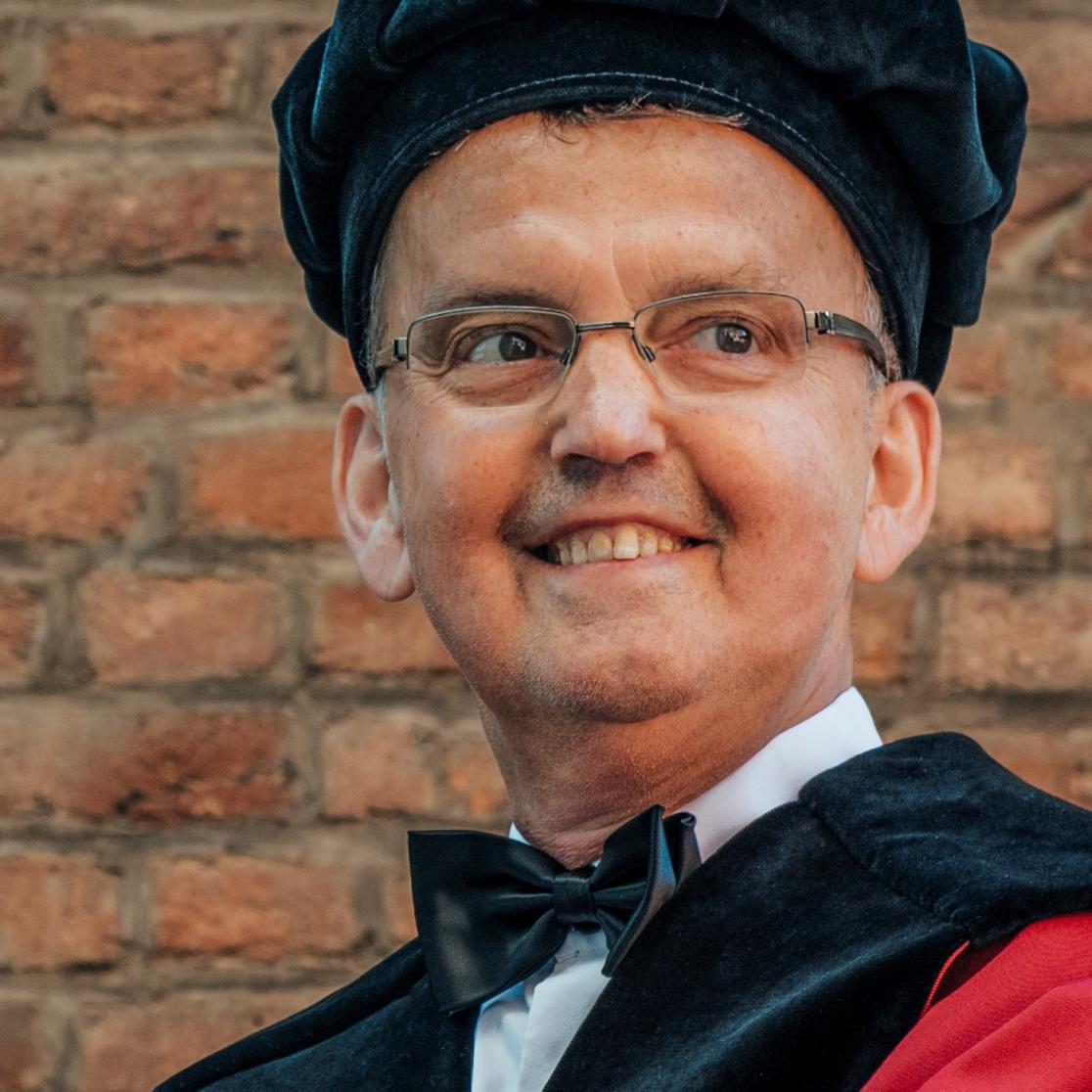
The funeral service will be held in private.
There is, however, the possibility to say goodbye to Ruud in person:
- Sunday 4 September 17.30 until 19.00; La Grande Suisse, Mariënwaard 61, Maastricht or;
- Monday 5 September 19.00 until 21.00; Fiore Uitvaartzorg, Kerkpad 17 in Sint Hubert (Noord Brabant).
In April a farewell interview with Ruud was published (in Dutch), which can be read here.